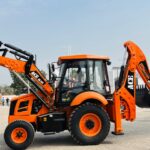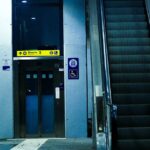Elevator installation is rarely a simple line item—especially when it comes to modern traction elevators serving commercial, mixed-use, or high-end residential buildings. If you’re a developer, architect, GC, facility manager, or owner planning a project for 2026, you want real answers about cost. As an engineering-first team at Kaiser Elevator, we’ve worked closely with clients navigating bids, design decisions, and site variables that directly impact their budgets. Here’s our in-depth, practical look at traction elevator installation costs by building type, what drives the numbers, and how to plan for your next project.
Why Traction Elevators Are Chosen for Most 2026 Builds
Traction elevators have become the standard across mid-rise and high-rise projects due to their energy efficiency, smooth ride, and ability to serve tall buildings with speed. Their value extends far beyond performance—they’re also highly customizable, ADA-compliant, and well-suited to the aesthetics and traffic demands of modern projects.

2026 Traction Elevator Installation Cost Ranges by Building Type
While every project is unique, there are clear budget bands we see across the industry for base installations. These can be influenced upwards by factors like premium finishes, advanced control systems, or complex retrofit work. Here’s what to expect:
- Private Residential (low-rise, home elevators): $28,000 – $90,000 per unit. This covers most basic units up to 3-4 stops. Highly customized or luxury retrofits may exceed $100,000, especially in space-constrained urban locations.
- Mid-Rise Commercial (4–10 stories): $75,000 – $200,000 per elevator. The range varies with load capacity (usually 2,000–5,000 lbs), number of stops, cab interiors, and added controls like destination dispatching.
- High-Rise & Premium Commercial Towers (10+ stories): $150,000 – $500,000+ per elevator. Towers in New York, San Francisco, or other major metros with custom finishes, higher speeds, and complex building code requirements will fall at the upper end.
To put it into context, a new 10-story office in New York City generally budgets $175,000–$250,000 per traction elevator for a standard, code-compliant system, before premium options.
Detailed Breakdown: What Drives Costs Up or Down?
- Building Height & Number of Stops: Every level served requires additional doors, controls, and more complex hoistway work.
- Elevator Speed: Systems specifying over 350 feet per minute (fpm)—common in high-rises—carry higher price tags for gearless machinery and advanced safety.
- Cabin Size & Load Capacity: Larger, higher-capacity options cost more in materials and electrical systems.
- Interior Finishes & Controls: Custom materials (stainless, glass, marble, designer lighting) and advanced dispatching (touchscreen or destination control) add to the budget, sometimes significantly.
- Code, Seismic & Fire Upgrades: Regions like NYC require strict compliance. Planning for sprinkler integration, fire-rated doors, backup power, and communication systems is non-negotiable.
- Existing Site Conditions: Retrofitting in older or irregular shafts is more costly than designing new shafts to elevator specs from the outset.
- Project Location & Labor: Projects in unionized, high cost-of-living markets (such as New York City) often see labor and logistics accounting for a material part of total installed cost.
Residential Traction Installations: What’s Different?
- Entry-level home traction elevators: $28,000–$50,000 achieves 2–3 stops, simple design, and base finishes.
- Premium and custom units: $50,000–$90,000 covers multi-stop layouts, glass walls, premium materials, larger cabs, and technology upgrades.
- Retrofit scenarios: If the shaft wasn’t elevator-ready (especially in historic or luxury homes), costs rapidly escalate beyond $100,000 due to confined spaces or structural modification.
Choosing a value-engineered, code-compliant solution early drives better economics and minimizes surprises. Learn more about key considerations in our preconstruction guide to elevator installs.
Mid-Rise Commercial & Mixed Use: Most Common Segment
- Base installations: $75,000–$120,000 per elevator, typically for vanilla build-outs.
- With custom finishes/controls: $150,000–$200,000 if adding stone or glass interiors, unique car station layouts, or destination-dispatch systems.
- Smart budgeting tips: Standardize cab sizes, involve manufacturers/consultants early, and optimize service core layouts to control costs.

High-Rise & Trophy Projects: Advanced Specs, Higher Investment
- Typical range: $150,000–$350,000 for most business towers, $300,000–$500,000+ for premium properties with advanced security, high-speed operation, and high-design finishes.
- Major cost levers:
- Number of cars and arrangement of elevator banks
- Specialty finishes, custom glass, or panoramic elements
- Destination dispatch (touchscreen-based) and integrated security
- Seismic upgrades if required (coastal or high-risk areas)
- Recommendations: Engage your vertical transport consultant and MEP engineer as early as possible for coordinated lift, code, and power planning. This minimizes RFIs and expensive late project changes. For more on the subject, read our post on traction versus hydraulic elevator considerations.
Lifecycle and Ongoing Costs: Looking Beyond Installation
Remember, installation is just one component of your elevator’s lifecycle. The most accurate budgeting includes:
- Routine service and maintenance: $2,000–$8,000 per car per year is typical, depending on riding hours and building location.
- Scheduled code inspections and recertifications: Varies by jurisdiction.
- Periodic upgrades: Control panels or safety systems may need updating every 10–15 years to remain compliant (and futureproof for automation or smart building integration).
For a full lifecycle perspective, see our article on value engineering and code-compliant elevator packages.
Cost-Smart Strategies for Developers & Owners
- Insist on clear line-item proposals. You should always have itemized visibility into all costs: equipment, installation, project management, and finishes.
- Choose value engineering from the outset. Our approach at Kaiser Elevator puts code requirements, operational efficiency, and aesthetics on the table before design-finalization, preventing unwelcome scope changes.
- Coordinate early. Your elevator partner should be involved in core layout design, power planning, and MEP coordination for best value.
- Ask about aftercare support and warranty. Reliable elevator uptime depends on emergency response and maintenance. Kaiser Elevator provides a 20-year structural warranty, 1-hour service call turnaround, and 24/7 hotline support—services that directly impact your operational risk and budget.

Frequently Asked Questions about 2026 Traction Elevator Install Costs
- Can I save by standardizing layouts across buildings? Yes. Standardizing shaft size, cab type, and finish options reduces custom engineering and ordering lead times.
- How do I ensure ADA and code compliance without overdesigning? Work with an elevator contractor specializing in American standards and city-specific codes—minimizing the risk of late-stage rework and budget surprises.
- Are energy-efficient features worth it? Traction elevators with LED lighting, regenerative drives, and standby features reduce operational costs over the lifecycle—learn more in our blog on energy-efficient elevators.
- Should I factor for modernization later? Yes. Tech and code requirements evolve. Properly designed shaft and controls can greatly simplify and lower the cost of future upgrades.
Next Steps: Getting a Project-Specific 2026 Quotation
If you’re budgeting for a 2026 start—in New York or nationwide—bring us in early for a detailed consultation. Our engineers and project managers provide transparent, itemized quotes with honest schedules, informed by decades installing traction elevators across commercial, residential, hospitality, healthcare, and parking structures. If you’re still comparing traction versus hydraulic for your building, check our comparison on 2026 budget differences.
Ready for a real-world, accurate estimate? Connect with our team at Kaiser Elevator’s Contact Page or call +1 (888) 274 6025. We’re ready to help you design, value-engineer, and deliver a code-compliant, aesthetically tailored elevator solution for your next building—on time and on budget.

